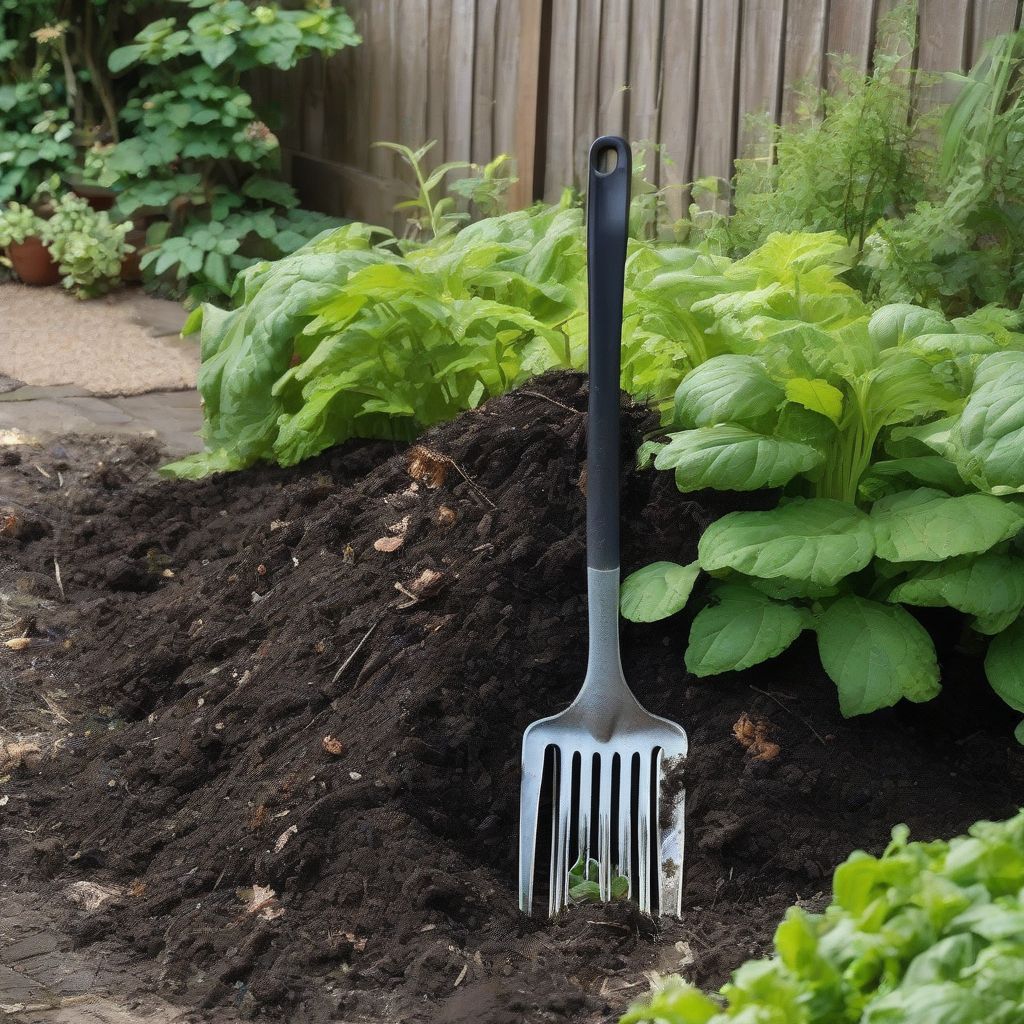Imagine biting into a juicy, flavorful tomato straight from your garden. It’s a simple pleasure, made even sweeter by the knowledge that you grew it yourself. But what if your tomatoes are lackluster, your herbs are spindly, and your soil feels more like dust than a source of life?
The secret to a thriving organic garden lies beneath the surface, in the health and vitality of your soil. And that’s where soil amendments come in. Think of them as the nutritional supplements for your garden, providing the essential nutrients and structure your plants need to flourish.
Understanding the Power of Soil Amendments
Before we dive into the best soil amendments for organic gardens, let’s answer a common question: what exactly are they, and why are they crucial?
Soil amendments are materials added to the soil to improve its physical and biological properties. They can:
- Enhance drainage: Heavy clay soils can suffocate roots. Amendments like compost and sand improve drainage, allowing for better airflow and water movement.
- Increase water retention: Sandy soils drain quickly, leaving plants thirsty. Adding amendments like peat moss or coconut coir helps the soil hold onto moisture.
- Boost nutrient content: Plants need a balanced diet too! Amendments like compost, manure, and bone meal provide essential nutrients like nitrogen, phosphorus, and potassium.
- Encourage beneficial microbial activity: A healthy soil is teeming with beneficial microorganisms that help break down organic matter and make nutrients available to plants.
The A-List of Organic Soil Amendments
Ready to give your garden the VIP treatment? Here’s a rundown of the best organic soil amendments:
1. Compost: The Black Gold of Gardening
 Compost Pile in Garden
Compost Pile in Garden
Compost is the undisputed champion of soil amendments, often referred to as “black gold” for its incredible benefits. It’s the result of decomposed organic matter like leaves, grass clippings, and kitchen scraps.
Why it’s a game-changer:
- Nutrient powerhouse: Compost is like a multivitamin for your soil, providing a balanced blend of essential nutrients.
- Improves soil structure: It loosens clay soils and helps sandy soils retain moisture.
- Enhances microbial activity: Compost introduces beneficial microbes that enhance soil fertility.
Expert Tip: Make your own compost or source high-quality compost from a local garden center.
2. Aged Manure: Nature’s Fertilizer
Manure, when properly composted and aged, is an excellent source of nutrients, particularly nitrogen.
Types to consider:
- Cow manure: A good all-purpose manure, widely available.
- Horse manure: Higher in nitrogen and often mixed with straw, adding organic matter.
- Chicken manure: Nutrient-rich but should be composted thoroughly to avoid burning plants.
Important Note: Always use aged manure to avoid introducing harmful pathogens to your garden.
3. Worm Castings: Black Gold 2.0
Worm castings are essentially worm poop—and trust me, this is one time you want poop in your garden! They are produced by earthworms as they digest organic matter.
Why they’re special:
- Gentle yet potent: Worm castings release nutrients slowly, making them less likely to burn plants.
- Boost plant growth: Rich in beneficial microbes and growth hormones.
- Improve soil structure: Enhance drainage and aeration.
Where to find them: Purchase worm castings online or at garden centers. You can even start your own worm composting system!
4. Blood Meal: A Nitrogen Boost
As the name suggests, blood meal is a dried and powdered form of animal blood, typically from cows.
Why it’s beneficial:
- Quick nitrogen fix: For plants needing a quick boost of nitrogen, blood meal is an excellent choice.
- Deters pests: The strong odor can help deter certain garden pests like rabbits and deer.
Use with caution: Apply sparingly, as too much nitrogen can harm plants.
5. Bone Meal: For Strong Roots and Blooms
Bone meal is made from ground animal bones, providing a slow-release source of phosphorus.
Why your garden will thank you:
- Promotes root development: Essential for establishing strong root systems, especially during transplanting.
- Encourages flowering and fruiting: Phosphorus is crucial for flower and fruit production.
When to use it: Mix bone meal into the soil when planting or use it as a top dressing during the growing season.
6. Greensand: The Potassium Powerhouse
Greensand is a naturally occurring mineral that provides a slow-release source of potassium.
Why it’s a winner:
- Boosts plant vigor and disease resistance: Potassium is essential for overall plant health.
- Improves fruit quality: Enhances the flavor, color, and size of fruits and vegetables.
- Environmentally friendly: A sustainable and renewable resource.
7. Rock Dusts: Mineral Richness from the Earth
Rock dusts, like granite dust and basalt dust, add trace minerals to the soil.
Why your plants will love them:
- Provide essential micronutrients: Replenish minerals often depleted in garden soils.
- Improve soil structure: Enhance drainage and water retention.
8. Cover Crops: Nature’s Soil Builders
Cover crops are planted not for harvest, but to improve the soil. Examples include clover, buckwheat, and ryegrass.
How they benefit your garden:
- Prevent erosion: Their roots hold the soil in place, preventing erosion from wind and water.
- Add organic matter: When tilled back into the soil, they decompose and add valuable nutrients.
- Suppress weeds: Some cover crops, like ryegrass, can help suppress weed growth.
Pro Tip: Choose cover crops that suit your climate and soil type.
Choosing the Right Soil Amendments
With so many incredible options, how do you choose the best soil amendments for your organic garden?
- Get a soil test: A soil test is like a blood test for your garden, revealing any nutrient deficiencies.
- Consider your plants’ needs: Different plants have different nutrient requirements.
- Start with compost: Compost is a great all-around amendment that benefits almost any garden.
- Don’t overdo it: More isn’t always better. Follow recommended application rates on amendment packaging.
Soil Amendments: Your Secret Weapon for a Thriving Garden
Just like a balanced diet nourishes our bodies, the right soil amendments provide the foundation for healthy, productive plants. By incorporating these natural powerhouses into your gardening routine, you’ll be well on your way to growing the most vibrant and bountiful organic garden you’ve ever imagined!
Ready to Dig In?
We’ve covered the A-list of soil amendments, but the world of organic gardening is vast and fascinating. Share your favorite soil amendment tips in the comments below, and let’s grow together!
[amazon bestseller=”organic soil amendments”]
